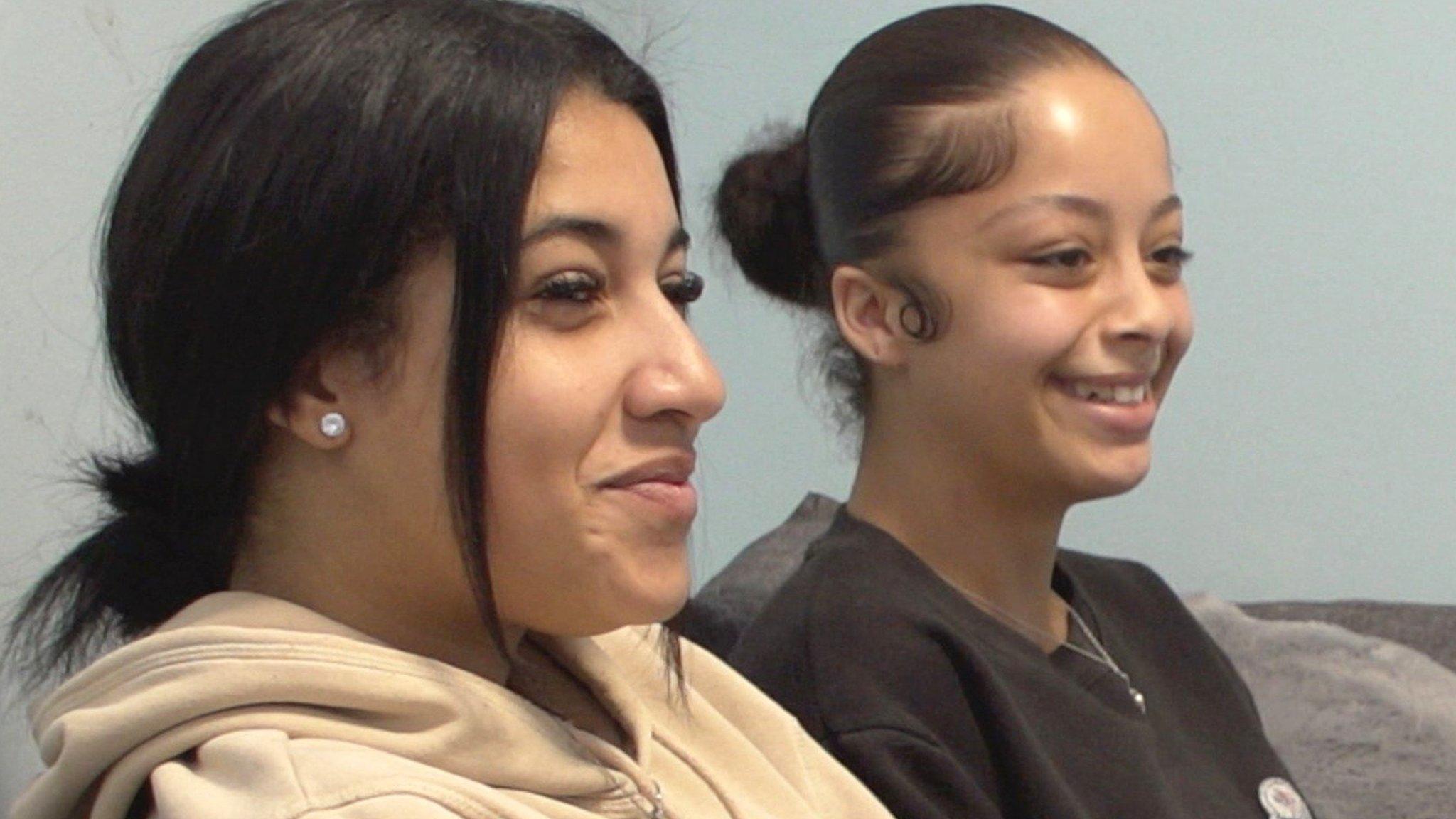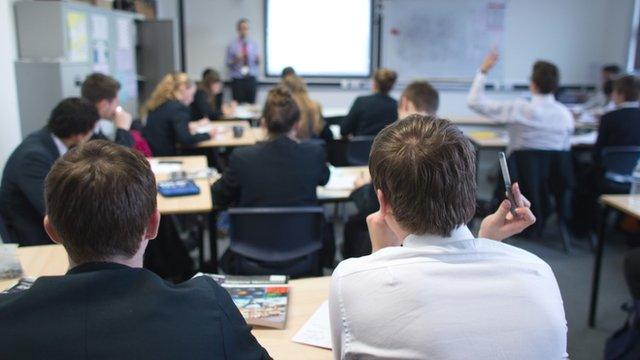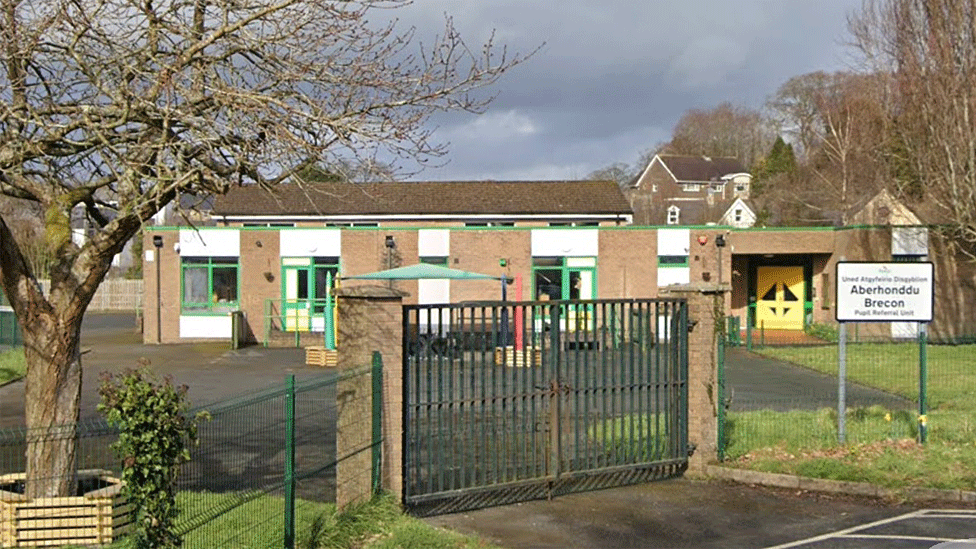Rise in pupils educated outside mainstream school

The number of pupils taught outside mainstream school is at a record 2,279
- Published
The number of pupils being educated outside school, including at pupil referral units, has risen to record levels in Wales.
Young people whose main education was not at school was at the highest ever, a record 2,279, according to annual figures from the Welsh government.
This is more than twice what it was in 2009-10 and 28% more than before the pandemic.
The Welsh government said in those circumstances, local authorities worked with families to ensure children got the support they needed.
Over the last 14 years there has been an upward trend but it is believed that since Covid there have been more referrals around anxiety, emotional and mental health needs.
The rate is also the highest – 4.9 for every 1,000 pupils in Wales.
It was highest in Merthyr Tydfil, where it rose to 10.4 per 1,000 pupils and was also higher in Pembrokeshire and Wrexham. In all, 15 out of 22 local authority areas saw an increase in the last year.
There was also a widening gap between pupils from more deprived and less deprived backgrounds. The rate of education outside mainstream school was more than 11 per 1,000 pupils eligible for free school meals compared to just over three per 1,000 for those not eligible.
The biggest rise has been in the 13 to 15-year-olds age group.
The number of young people being offered places in pupil referral units passed 1,000 for the first time.
That is around 46% of all pupils being educated outside mainstream school and slightly down on the year before, but there has been a rise in pupils being educated by individual tutors.
The vast majority of those educated outside mainstream school are also classed as having additional learning or special needs.
The Welsh government said since the pandemic there had been an increasing demand for the provision of education other than at school.
"This could be for a number of reasons, including physical and mental health issues and anxiety, which we know is an increasing concern for children and young people," said a spokesperson.
"When education other than at a school is put in place, the local authority works with the family and education provider to ensure the child gets the support needed."
The children's commissioner, Rocio Cifuentes, said the figures showed a "clear trend and societal shift following the pandemic" and more work needed to be done directly with children to understand their perspective.
What about pupils taught at home?
These figures do not include and are separate from those pupils educated outside school because of parental choice.
That has been rising year-on-year and stood at 13 for every 1,000 pupils in 2023/24. That is 6,156 pupils elected to be taught at home in total.
That rate is highest in Ceredigion (26 per 1,000) and has risen the most in the past 14 years in Blaenau Gwent (now 19 per 1,000).
Related topics
- Published19 July 2023

- Published25 July 2018

- Published28 July 2024
